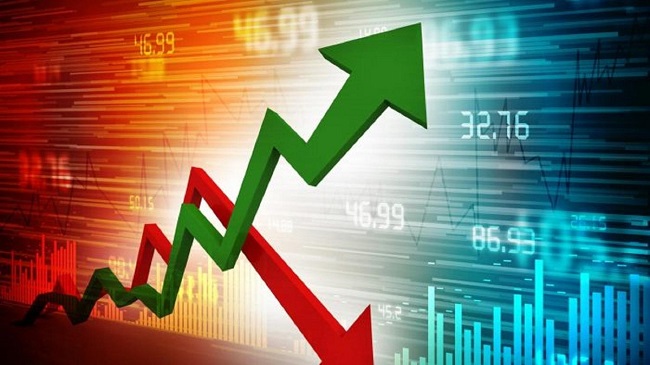The sustained growth in the Nigerian private sector in 2025 has triggered an increase in business confidence, the Stanbic IBTC Purchasing Managers’ Index has revealed.
The report revealed that new orders and business activities continued to rise in the first month of 2025.
Also, there was a large improvement in business confidence while firms expanded employment, purchasing and inventories.
Although input costs and output prices continued to rise rapidly, respective rates of inflation were much slower than seen in December.
According to the PMI, readings above 50.0 signal an improvement in business conditions in the previous month, while readings below 50.0 show deterioration.
The headline PMI posted 52.0 in January, down from 52.7 in December but still above the 50.0 no-change mark and therefore signaling a second successive monthly improvement in the health of the Nigerian private sector.
Business activity rose solidly in January, after having returned to growth in December.
That said, the rate of expansion eased from the previous month. Activity increased across three of the four monitored sectors, the exception being wholesale and retail.
Head of Equity Research West Africa at Stanbic IBTC Bank, Muyiwa Oni, said: “Nigeria’s private sector activity sustained its improvement in January 2025, albeit lower than levels seen in December 2024. We note an increase in both output (53.7 vs December 2024: 54.8) and new orders (52.6 vs December 2024: 53.2) although slightly weaker than that seen at the end of 2024, on account of improving customer demand and more willingness to commit to new projects.
“Given the rising new orders, companies took on additional workers in January – representing the second month running in which this has been the case.
“Elsewhere, input prices increased at a slower pace while the pace of increase in output prices is the slowest since July 2024.
“Headline inflation averaged 33.18 per cent year-on-year in 2024 from an average of 24.52 per cent year-on-year in 2023, mostly driven by significant FX depreciation; renewed petrol price increases in line with full petrol price liberalization; structurally low food supplies exacerbated by high extreme weather conditions; and increased food demand, especially during the festive season.
“We expect a moderation in the inflation rate in 2025 although the pace of the moderation is only likely to be faster in the third quarter 2025. Notably, we expect headline inflation to average 30.5 per cent year-on-year in 2025 and end the year at 27.1 per cent year-on-year.
“In 2025, we project the non-oil sector to grow by 3.2 per cent year-on-year from an estimated 3.0 per cent year-on-year in 2024. Growth is likely to pick up across manufacturing and trade, while ICT and finance and insurance should continue to play a big role in economic performance.
“However, agriculture will likely still lag its long-term average amid lingering internal security challenges, high input costs, and extreme weather conditions. Within the manufacturing sector, cement, food and chemicals and pharmaceutical products are key sub-sectors that have been exceeding the manufacturing sector’s growth since fourth quarter 2022.”
However, another report said 43.7 per cent of Nigeria’s businesses reduced their workforces last year as a result of macroeconomic challenges.
The report released by data company, Mustard Insights, surveyed over 100 business owners, executives and industry leaders.
It claimed that the year’s challenging economic conditions affected organisations of varying sizes.
As part of strategies to survive the economic hardship, the report titled ‘Nigeria’s Business Survival Report 2024: Strategies for Sustainable Business Growth amid Economic Turbulence’ said that 65 per cent of businesses increased the prices of their goods and services to stay afloat.
While the findings of the report are derived from research and direct input of business leaders, entrepreneurs and industry stakeholders, Mustard Insights said it also covers a comparative analysis of Q3 results of 2022, 2023 and 2024 to assess comparative changes in revenue, direct costs, total expenses and salaries of a Nigeria’s top-listed companies (NGX-30).
The raw material was identified as the highest cost element (input costs), with analysis of NGX companies revealing a significant increase in costs in the year 2024 compared to 2023.
The report revealed that between 2022 and 2023 year on year, 70 percent of listed companies experienced only less than a 50 per cent increase in direct costs; 20 per cent experienced a 51 per cent to 100 per cent increase in direct costs while 10 per cent had above 100 per cent increase in costs.

